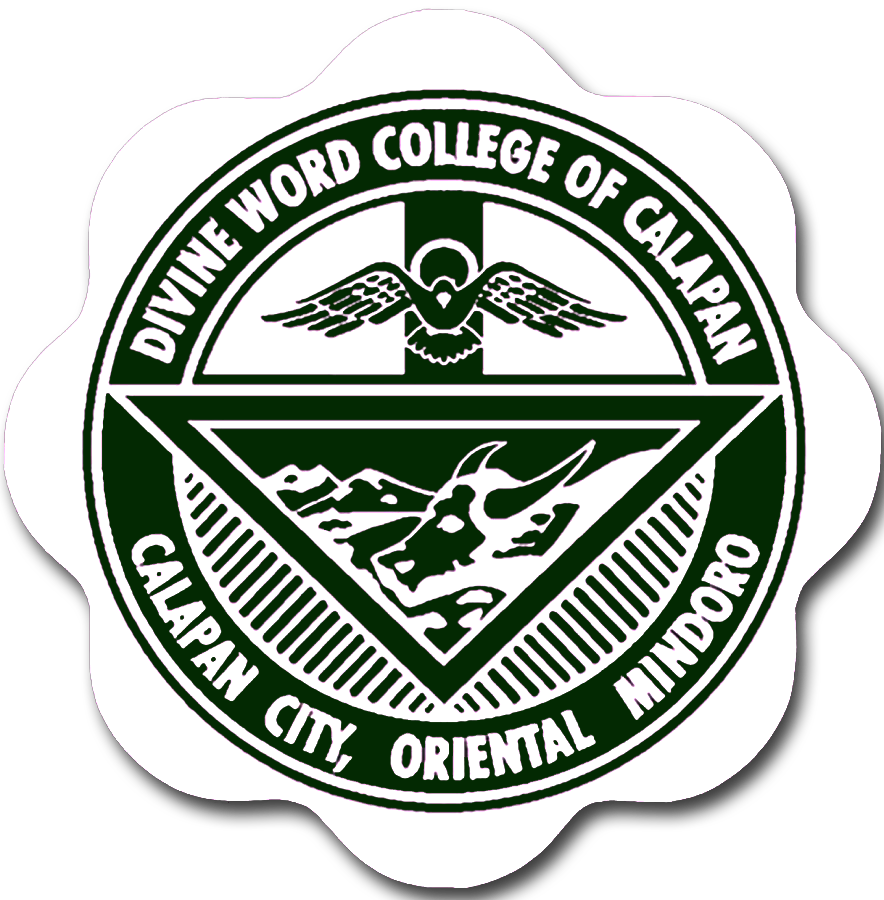School of Accountancy
Message from the Dean
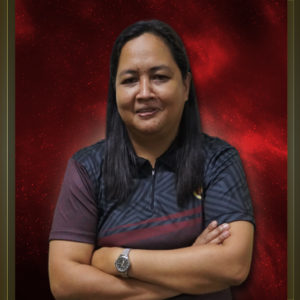
Welcome to the School of Accountancy!
Accountancy is more than just numbers; it embodies integrity, precision, and the ability to make informed decisions based on sound financial principles. Here at our School, we are dedicated to instilling these core values in our students, equipping them not only for successful careers but also for leadership roles in the global business community.
Our faculty members are renowned for their academic rigor and extensive industry experience, ensuring that our curriculum remains at the forefront of accounting education. Through innovative teaching methods and strategic partnerships with leading firms and professional organizations, we empower our students with the knowledge and skills necessary to thrive in a rapidly evolving profession.
In today’s dynamic economic and technological landscape, the role of accountants continues to expand. Our commitment to excellence in education, research, and community engagement positions us as a center of knowledge and innovation in the field of accountancy.
Our Bachelor of Science in Accountancy program stands out as the top choice in the region, boasting a high overall passing rate in the Licensure Examination for CPAs. Additionally, our newly launched Bachelor of Science in Management Accounting is designed to support students seeking the prestigious CMA designation.
I encourage each of you to seize the resources and opportunities available at our School. Engage actively in your studies, collaborate with peers, and embrace every chance to broaden your horizons beyond the classroom.
Together, let us uphold our core values of integrity, social responsibility, excellence, and evangelization. I eagerly anticipate witnessing your growth and achievements as you progress through your academic journey with us.
Be one of us! Be the best you can be!
Mary Jane R. Bautista, CPA, MBA
Dean, School of Accountancy
- About
- Vision, Mission & Goals
- Programs Offered
- Admission & Retention
- General Academic Policy
- Grading Policy
- Faculty & Staff
The School of Accountancy at Divine Word College of Calapan stands as a pillar of excellence in accounting education, renowned for its commitment to academic rigor, professional development, and ethical leadership. Rooted in SVD spirituality, our school prepares students to excel in diverse facets of the accounting profession.
Programs Offered
The School offers a comprehensive range of undergraduate programs tailored to meet the evolving needs of aspiring accountants and finance professionals:
• Bachelor of Science in Accountancy (BSA): Our flagship program is designed to provide a solid foundation in accounting principles, preparing students for successful careers in public accounting, corporate finance, government, and non-profit organizations. Graduates of our BSA program consistently achieve high passing rates in professional examinations such as the CPA licensure exam.
• Bachelor of Science in Management Accounting (BSMA): This specialized program equips students with the analytical skills and managerial acumen necessary for roles in management accounting, financial analysis, and strategic planning. It offers a pathway to certifications such as the CMA (Certified Management Accountant).
• CPA Refresher Course – this course is designed to support accounting professionals in enhancing their skills, updating their knowledge, and preparing for the CPA (Certified Public Accountant) examination. Accredited by the Board of Accountancy, this course serves as the crucial bridge for candidates aiming to successfully pass the CPA Licensure Examination.
Vision
The DWCC School of Accountancy envisions itself as the leader in quality accounting education in the Philippines.
Mission
Produce globally competitive professional accountants rooted in SVD spirituality.
Goals
• Relevant Curriculum: Develop and implement a curriculum that aligns with international standards while integrating SVD spirituality and cultural sensitivity to produce globally competitive professional accountants.
• Faculty Development: Provide continuous training and development opportunities for faculty members to ensure that they are equipped with knowledge and skills aligned with current accounting standards and practices.
• Student Engagement: Foster a supportive learning environment that encourages active student participation, critical thinking, and ethical decision-making in accounting practices engrained with DWCC core values.
• Industry Partnerships: Forge strategic partnerships with accounting firms, corporations, and professional organizations to provide students with real-world exposure, internships, and job placement opportunities.
• Research and Innovation: Engage faculty and students in research activities focused on advancing accounting practices while incorporating SVD spirituality and cultural sensitivity.
• Continuous Improvement: Regularly assess and review the effectiveness of academic programs, teaching methodologies, and student outcomes to identify areas for improvement and ensure alignment with the vision and mission of the school.
• Alumni Engagement: Cultivate a strong network of alumni who serve as mentors, advocates, and industry leaders, fostering a sense of community and pride in the DWCC School of Accountancy.
• SVD Spirituality: Deepen the understanding and practice of SVD Spirituality by integrating the core values of missionary zeal, interculturality and solidarity in the student-faculty engagements and community life.
• Cultural Sensitivity: Cultivate cultural sensitivity by actively seeking to understand and appreciate diverse perspectives, traditions, and values, thereby fostering inclusive interactions and relationships.
The School offers a comprehensive range of undergraduate programs tailored to meet the evolving needs of aspiring accountants and finance professionals:
Program Admission and Retention Policy for Bachelor of Science In Accountancy
PURPOSE: The objectives of admission and retention policies of Bachelor of Science in Accountancy are:
1. Selecting Qualified Candidates: The admission policies are designed to identify and admit students who meet specific academic and non-academic criteria. This ensures that the school maintains a standard of academic excellence and admits individuals likely to succeed in the BSA program.
2. Maintaining Academic Standards: The admission and retention policies help in maintaining the academic integrity and reputation of the institution by admitting and retaining students who demonstrate the necessary skills, knowledge, and potential to succeed in the BSA program.
3. Student Success and Retention: Retention policies focus on ensuring students will successfully complete their studies and pass the Licensure Examination for CPAs and other certifications.
4. Alignment with Institutional Mission: The admission and retention policies are designed to align with the overall vision, mission, goals and core values of Divine Word College of Calapan.
I. POLICY STATEMENT:
1. PROGRAM ADMISSION POLICY
A. FOR FRESHMEN
Students from any track of the senior high school shall be admitted to the Bachelor of Science in Accountancy program provided they:
- Have passed the DWCC College Admission Test
- Meet the admission requirements set by the institution
B. FOR SHIFTEES
A student from another program of the College who wishes to transfer to BS in Accountancy Program shall be admitted provided they:
- Have no failing grade in any course from his/ her current program.
- Have an actual grade point average of at least 80% or its equivalent.
C. FOR TRANSFEREES
A student from another school who wishes to enroll to BS in Accountancy Program shall be admitted provided they:
- From another program:
- Have no failing grade in any course from his/ her current program.
- Have an actual grade point average of at least 80% or its equivalent.
- From Accountancy program:
- Have no failing grade in any course from his/ her current program.
- Have an actual grade point average of at least 80% or its equivalent.
Core Accounting Education Courses, Cognate/Major/Professional Courses, and Accounting Review Courses taken in another school may be credited provided that:
- The grade is at least 82% or its equivalent and student is qualified in validation examination (grade of at least 82%) for the particular course.
- The number of units in Core Accounting Education Courses, Cognate/Major/Professional Courses, and Accounting Review Courses to be credited does not exceed 50% of the total Core Accounting Education Courses and Cognate/Major/Professional Courses units required in the program.
2. RETENTION POLICY
The student must meet the following requirements to continue in the program and obtain the corresponding BSA degree:
- A grade of at least 82% in all Core Accounting Education Courses, Cognate/Major/Professional Courses, and Accounting Review Courses. The student should retake the course if he failed to meet the grade requirement to continue in the program.
Subjects included in the retention policy of 82%:
Core Accounting Education Courses
Law on Obligations and Contracts
Business Laws and Regulations
Regulatory Framework and Legal Issues in Business
Management Science
International Business and Trade
Accounting Research Methods
Accounting Internship
Accounting Research
Statistical Analysis with Software Application
Governance, Business Ethics, Risk Management, and Internal Control
Managerial Economics
Economic Development
Financial Accounting and Reporting
Conceptual Framework and Accounting Standards
Intermediate Accounting 1
Intermediate Accounting 2
Intermediate Accounting 3
Financial Markets
Financial Management
Accounting Information System
IT Application Tools in Business
Cost Accounting and Control
Strategic Cost Management
Strategic Business Analysis
Business Taxation
Income Taxation
Operations Management and TQM
Cognate/Major/Professional Courses
Auditing and Assurance Principles
Auditing and Assurance: Concepts and Applications 1
Auditing and Assurance: Concepts and Applications 2
Auditing and Assurance: Specialized Industries
Accounting for Special Transactions
Accounting for Business Combinations
Accounting for Government and Non-Profit Organizations
Professional Electives 1 (Updates in Financial Reporting Standards)
Professional Electives 2 (Operations Auditing)
Professional Electives 3 (Valuation Concepts and Methods)
Professional Electives 4 (Principles and Methods of Teaching Accounting)
Accounting Review Courses
Integrated Accounting Course in Regulatory Framework for Business Transactions
Integrated Accounting Course in Financial Accounting and Reporting
Integrated Accounting Course in Advanced Financial Accounting and Reporting
Integrated Accounting Course in Taxation
Integrated Accounting Course in Financial Management and Advisory Services
2. However, a student is allowed only a maximum of two (2) takes in Financial Accounting and Reporting and Conceptual Framework and Accounting Standards courses. A second failure to obtain the required grade in these courses automatically disqualifies the student from the BSA program.
3. No student shall be permitted to take any advanced courses until a grade of at least 82% in the prerequisite subject/s is/are satisfied. Request for reconsideration of the violation of prerequisites/sequence of course/s is/are strictly not allowed.
4. Accounting and board-related subjects, when taken for the first time, shall be offered only during the regular term.
5. No cross-enrollment is allowed for accounting and board-related subjects.
6. General education components of the curriculum are preferably taken in the first two years of the curriculum.
I. CLASS ATTENDANCE
Class attendance is expected of all students. Students who find it necessary to be absent should notify the instructor before the class period. Students arriving late should communicate with the instructor as well. Instructors may verify the reason for a student’s absence. Students who missed two consecutive meetings without notification will be reported to the Guidance office. Absenteeism and habitual tardiness will also be reported to the Guidance office for counseling. Section 3 of the DWCC Students’ Handbook will apply as to maximum allowed absences and approved absences.
II. EXAMINATIONS/QUIZZES
1. Students are required to take all major examinations and quizzes on the schedule agreed upon by
the faculty and students. Students who want to take an examination on dates and times other than
scheduled must seek approval first from the faculty and the dean.
2. It is the student’s duty to take notice of his examination schedule.
3. Exemption to take any examination is not allowed.
4. Final Departmental Examinations are required for all board-related subjects.
5. A minimum of four quizzes must be given in a term (per course).
6. The minimum number of items for quizzes is 20 and 50 for major examinations.
7. Answers to computational questions must be supported with computations presented in good form
and must be written in a worksheet. No supporting computation, no credit.
8. No remedial examination shall be given.
III. SPECIAL EXAMINATION
1. Special exams may be given to students who missed major examinations and quizzes for any of the following acceptable reasons:
a. Death in the family
b. Confinement in the hospital
c. Sickness
d. Activity sanctioned by the school, whether co-curricular or extra-curricular (sports and cultural)
e. Emergencies and other reasons, the validity of which has been determined by the appropriate approving authority.
Travel or work arrangements and other commitments during the examination period is not a valid reason
warranting special examination.
2. Supporting Evidence
The following supporting evidence must be presented before a request for the special examination will be approved:
a. Disability/chronic illness –an appropriate certificate or report from a registered doctor or another
appropriate professional.
b. School Sanctioned Activities – Excused letter from the appropriate school authority
c. Other Reasons – Notarized affidavit of parents or guardian in case the parents will not be able to
report to the school
Supporting evidence must be current and original. Photocopies, faxes, and emails will not be accepted.
3. Procedure
a. A student must apply for a special exam by properly filling out a request form for approval by the Dean within five days after the inability has been removed.
b. If the request is approved, the student will be given another exam of equal difficulty and length as that of the missed exam.
c. Failure to take the special exam within the specified period will result in a grade of 67.
IV. CHEATING/ACADEMIC DISHONESTY
a. Cheating in examinations and other requirements will warrant a grade of 67 in the particular exam or requirement.
b. Cases of cheating shall be reported to Student Affairs Office for investigation and due process.
V. CORPORATE ATTIRE
4. All 3rd and 4th year accounting students are required to wear corporate attire every first Wednesday of the month. Students who will not wear the proper corporate attire will be sanctioned in accordance with the policy of the school re non-attendance in school activities.
I. TRANSMUTATION TABLE
The following transmutation table shall be used in grading examinations and other requirements:
% | GRADE | % | GRADE | |
0-3 | 67 | 67-68 | 84 | |
4-9 | 68 | 69-70 | 85 | |
10-15 | 69 | 71-72 | 86 | |
16-21 | 70 | 73-74 | 87 | |
22-28 | 71 | 75-76 | 88 | |
29-34 | 72 | 77-78 | 89 | |
35-40 | 73 | 79-80 | 90 | |
41-46 | 74 | 81-82 | 91 | |
47-49 | 75 | 83-84 | 92 | |
50-51 | 76 | 85-86 | 93 | |
52-53 | 77 | 87-89 | 94 | |
54-55 | 78 | 90-91 | 95 | |
56-57 | 79 | 92-93 | 96 | |
58-59 | 80 | 94-95 | 97 | |
60-62 | 81 | 96-97 | 98 | |
63-64 | 82 | 98-99 | 99 | |
65-66 | 83 | 100 | 100 |
II. COMPUTATION OF FINAL RATING:
The school uses the following criteria for the computation of the students’ final grade:
For regular semester:
Component | Percentage |
Preliminary Examination | 10% |
Midterm Examination | 15% |
Prefinal Examination | 20% |
Final Examination | 25% |
Quizzes | 15% |
Project | 5% |
Attendance, Recitation, Assignment & Seatworks | 10% |
Total | 100% |
For summer:
Component | Percentage |
Midterm Examination | 30% |
Final Examination | 40% |
Quizzes | 15% |
Project | 5% |
Attendance, Recitation, Assignment & Seatworks | 10% |
Total | 100% |
III. INTERPRETATION:
1. A grade below 75% is considered FAILED.
2. A grade of 75% and above is considered PASSED.
3. A grade of 82% and above is considered QUALIFIED.
4. A DROPPED grade is given if the student exceeds the allowed absences before Midterm Examination.
5. An FA (failed due to absences) grade is given if the student exceeds the allowed absences after Midterm Examination.
The following symbols may also appear on the student’s rating. These grades do not bear grade points:
NIC (Not in Class) – If the student is enrolled in the course but did not show up the entire term.
INC (Incomplete) – If the student failed to take the examination or other requirements of the course.
IV. INCOMPLETE GRADE:
A student may need an extension of time to complete course requirements due to unforeseen events. Incomplete grades are issued only in cases of extenuating circumstances such as severe illness or other analogous cases. Failure to secure/present admission slip for the final examination will also result in incomplete grades. Incomplete grades are not issued in cases wherein the student is simply unable to complete his/her work within the specified term.
Incomplete grades must be completed in a period of one (1) year, otherwise, the student will be given a grade of 70% (FAILED).
For grade completion, the student must submit a completion form and provide any requested documentation to be reviewed and accomplished by the course instructor. Final approval of the completion form is under the discretion of the Vice-President for Academic Affairs.
V. GRADE RECORD CHANGE:
A faculty member or school dean can initiate an official grade change. Such event will only occur if the “official grade” posted is derived from a computational or technical error. Final approval of grade change resides with the Vice-President for Academic Affairs.
VI. GRADE APPEAL:
Students have the right to appeal a final grade if they believe it is erroneous or it is a result of “Arbitrary and capricious grading”.
“Arbitrary and capricious grading” is defined as:
1. A grade computed on some other basis other than the criteria mentioned above;
2. A grade is given to a student based on standards that is significantly different from those applied to other students in the course.
3. A grade is given to a student because of vindictiveness or discrimination.
To do so, the student shall report to the School Dean and provide a written explanation and documentation regarding the grade appeal. A student may appeal for his grade within one (1) semester after the posting of his grade in MAMS.
Faculty & Staff
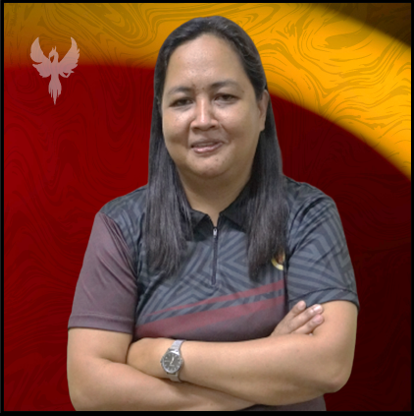
Ms. MARY JANE R. BAUTISTA, CPA, MBA
Dean, School of Accountancy
- Certified Public Accountant
- Master in Business Administration
- Accredited Accounting Teacher
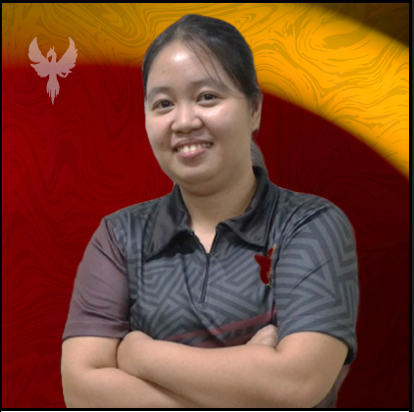
Ms. LENEILYN M. POBLETE, CPA
- Program Coordinator, Bachelor of Science in Accountancy
- Adviser, Junior Philippine Institute of Accountants
- Certified Public Accountant
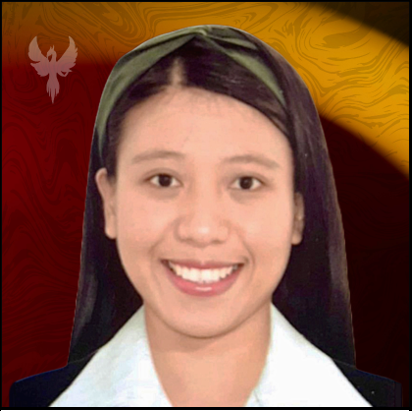
Ms. CRISELLE D. MAGDALITA, CPA, MBA
- Program Coordinator, Bachelor of Science in Management Accounting
- Adviser, School of Accountancy
- Certified Public Accountant
- Master in Business Administration
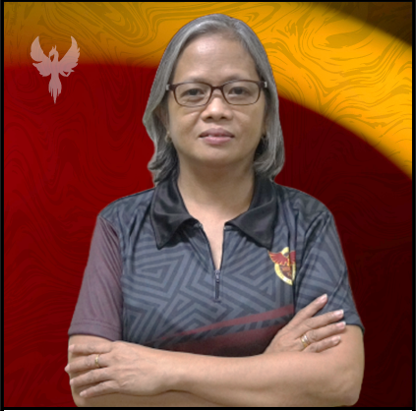
ATTY. MA. ELLEN C. ABAS, CPA
- Part-time Faculty
- Certified Public Accountant
- Juris Doctor

Mr. EDER APOLINAR S. REDUBLO, PhD.
- Part-time Faculty
- Bachelor of Science in Civil Engineering
- Master in Business Administration
- Doctor of Philosophy in Management
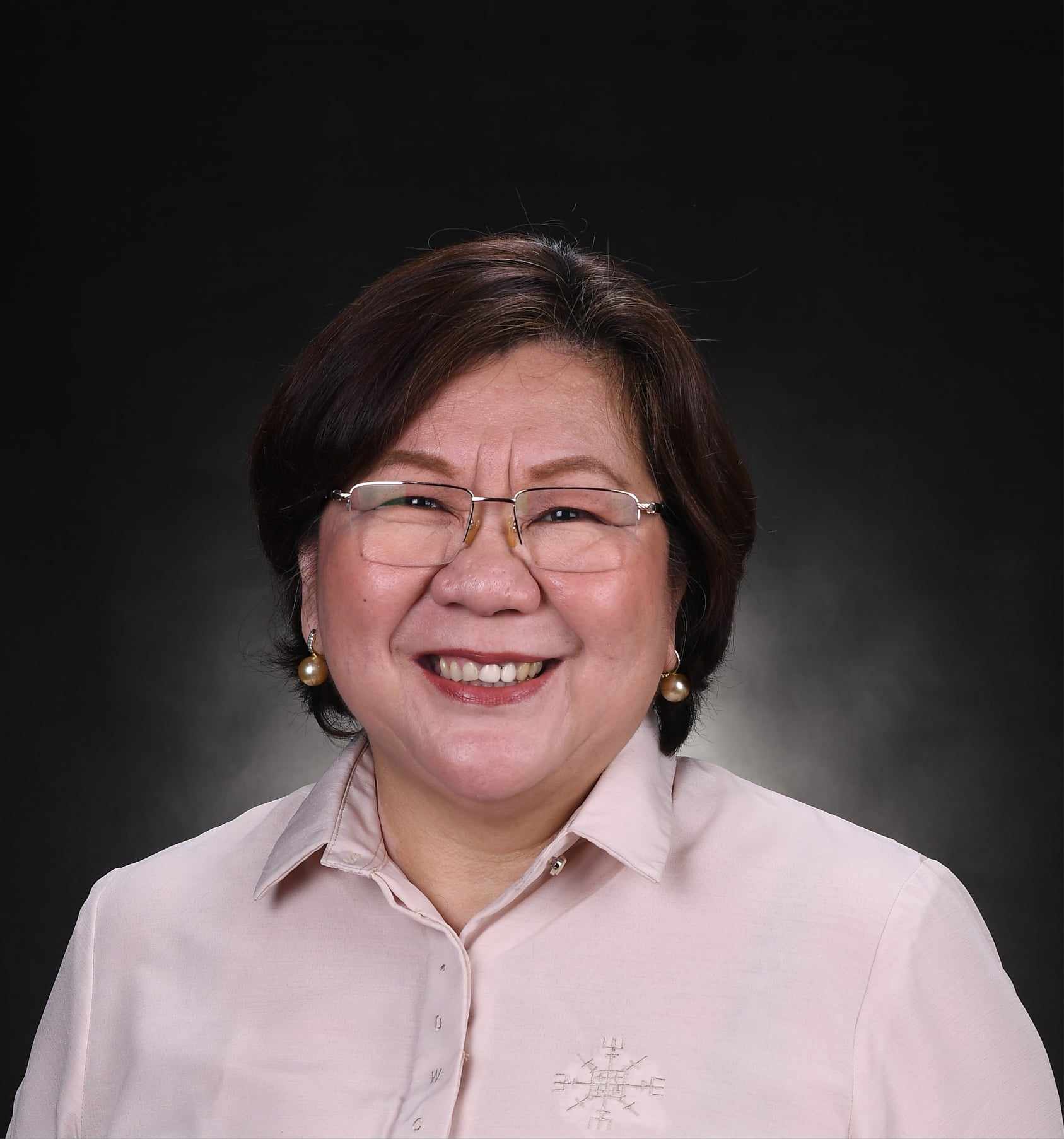
Ms. ALELI C. DUGAN, CPA, PhD.
- Part-time Faculty
- Certified Public Accountant
- Master in Business Administration
- Doctor of Philosophy in Management

Ms. CHERRY C. LUZON, CPA, CIA, CGAP, CRMA, CFCS, MBA
- Part-time Faculty
- Certified Public Accountant
- Certified Internal Auditor
- Certified Government Auditing Professional
- Certification in Risk Management Assurance
- Certified Financial Crime Specialist
- Master in Business Administration
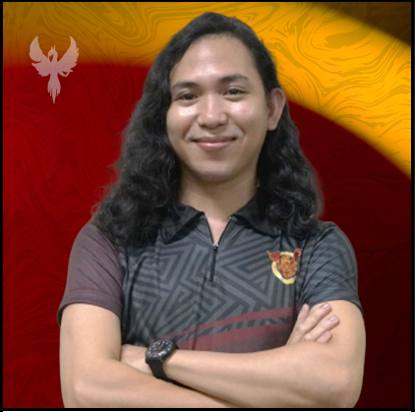
Mr. HARVYN KUSTER B. ACEDILLO, CPA, MBA
- Part-time Faculty
- Certified Public Accountant
- Master in Business Administration
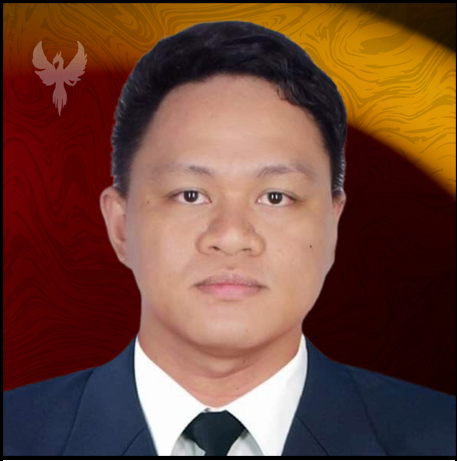
Mr. LESTER ANTONI G. DE GUZMAN, CPA
- Part-time Faculty
- Certified Public Accountant
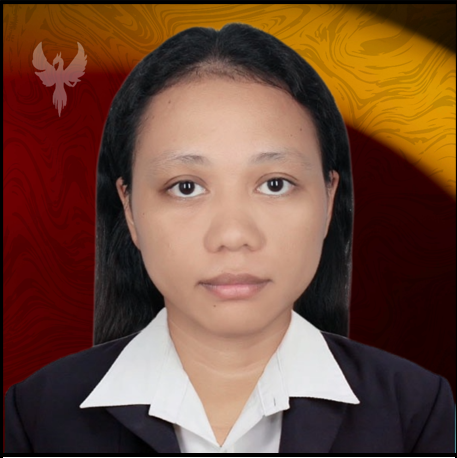
Ms. JEAN PAULA G. DE GUZMAN, CPA
- Part-time Faculty
- Certified Public Accountant
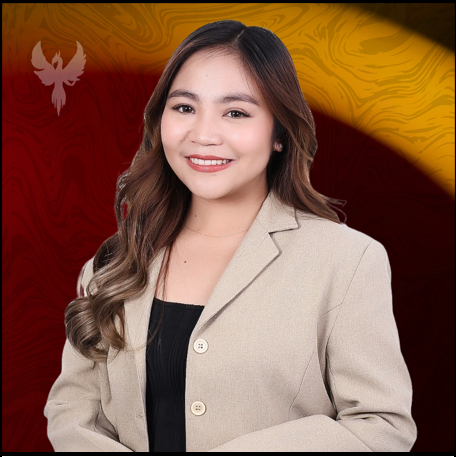
Ms. CHESKA R. JAPLOS, CPA, CMA
- Part-time Faculty
- Certified Public Accountant
- Certified Management Accountant

Mr. RALPH HENRY M. MAGDALITA, CPA, CrFA
- Part-time Faculty
- Certified Public Accountant
- Certified Forensic Accountant

Mr. JERUM D. CASTILLO, CPA, MBA
- Part-time Faculty
- Certified Public Accountant
- Master in Business Administration
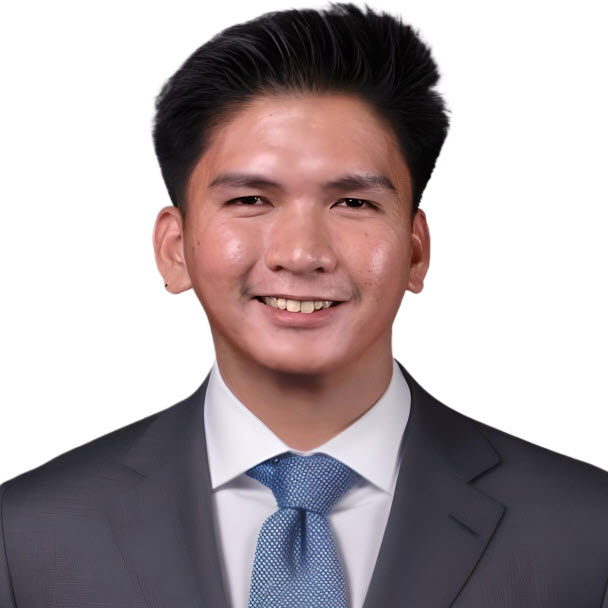
Mr. JON CHRISTIAN M. MIRANDA, CPA, MBA
- Part-time Faculty
- Certified Public Accountant
- Master in Business Administration
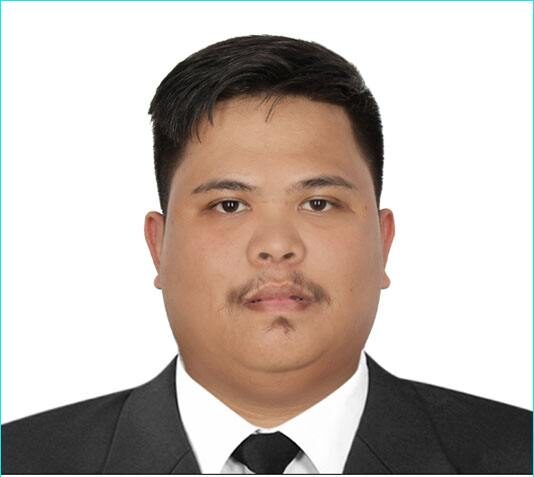
Mr. ALVIN C. CALDERON, CPA
- Part-time Faculty
- Certified Public Accountant

Mr. ERJOHN O. PAPA, CPA
- Part-time Faculty
- Certified Public Accountant
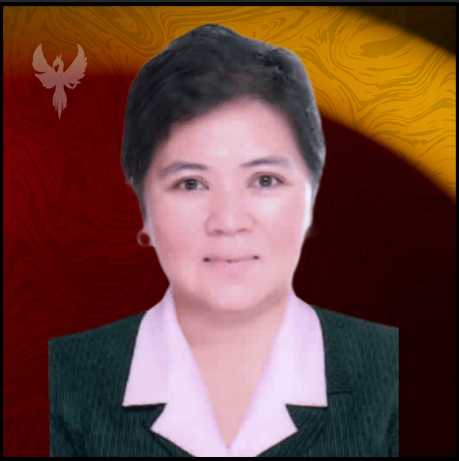
Ms. MYLENE G. MENDOZA
- Part-time Faculty
- Master in Business Administration
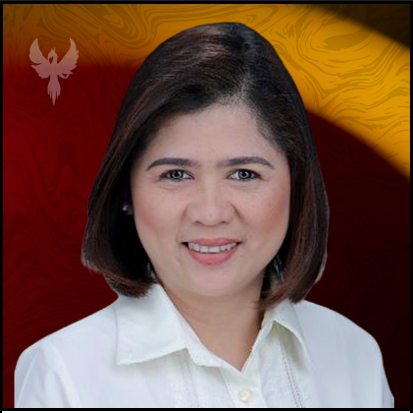
Ms. BELINDA P. CLEOFE, MBA
- Part-time Faculty
- Master in Business Administration
The School of Accountancy at Divine Word College of Calapan stands as a pillar of excellence in accounting education, renowned for its commitment to academic rigor, professional development, and ethical leadership. Rooted in SVD spirituality, our school prepares students to excel in diverse facets of the accounting profession.
Programs Offered
The School offers a comprehensive range of undergraduate programs tailored to meet the evolving needs of aspiring accountants and finance professionals:
Programs Offered
The School offers a comprehensive range of undergraduate programs tailored to meet the evolving needs of aspiring accountants and finance professionals:
- Bachelor of Science in Accountancy (BSA):
- Bachelor of Science in Management Accounting (BSMA):
- CPA Refresher Course –
Our flagship program is designed to provide a solid foundation in accounting principles, preparing students for successful careers in public accounting, corporate finance, government, and non-profit organizations. Graduates of our BSA program consistently achieve high passing rates in professional examinations such as the CPA licensure exam.
This specialized program equips students with the analytical skills and managerial acumen necessary for roles in management accounting, financial analysis, and strategic planning. It offers a pathway to certifications such as the CMA (Certified Management Accountant).
this course is designed to support accounting professionals in enhancing their skills, updating their knowledge, and preparing for the CPA (Certified Public Accountant) examination. Accredited by the Board of Accountancy, this course serves as the crucial bridge for candidates aiming to successfully pass the CPA Licensure Examination.
Vision
The DWCC School of Accountancy envisions itself as the leader in quality accounting education in the Philippines.
Mission
Produce globally competitive professional accountants rooted in SVD spirituality.
Goals
- Relevant Curriculum:
- Faculty Development:
- Student Engagement:
- Industry Partnerships:
- Research and Innovation:
- Continuous Improvement:
- Alumni Engagement:
- SVD Spirituality:
- Cultural Sensitivity:
Develop and implement a curriculum that aligns with international standards while integrating SVD spirituality and cultural sensitivity to produce globally competitive professional accountants.
Provide continuous training and development opportunities for faculty members to ensure that they are equipped with knowledge and skills aligned with current accounting standards and practices.
Foster a supportive learning environment that encourages active student participation, critical thinking, and ethical decision-making in accounting practices engrained with DWCC core values.
Forge strategic partnerships with accounting firms, corporations, and professional organizations to provide students with real-world exposure, internships, and job placement opportunities.
Engage faculty and students in research activities focused on advancing accounting practices while incorporating SVD spirituality and cultural sensitivity.
Regularly assess and review the effectiveness of academic programs, teaching methodologies, and student outcomes to identify areas for improvement and ensure alignment with the vision and mission of the school.
Cultivate a strong network of alumni who serve as mentors, advocates, and industry leaders, fostering a sense of community and pride in the DWCC School of Accountancy.
Deepen the understanding and practice of SVD Spirituality by integrating the core values of missionary zeal, interculturality and solidarity in the student-faculty engagements and community life.
Cultivate cultural sensitivity by actively seeking to understand and appreciate diverse perspectives, traditions, and values, thereby fostering inclusive interactions and relationships.
Program Admission and Retention Policy for Bachelor of Science In Accountancy
PURPOSE:The objectives of admission and retention policies of Bachelor of Science in Accountancy are:
- Selecting Qualified Candidates:
- Maintaining Academic Standards:
- Student Success and Retention:
- Alignment with Institutional Mission:
The admission policies are designed to identify and admit students who meet specific academic and non-academic criteria. This ensures that the school maintains a standard of academic excellence and admits individuals likely to succeed in the BSA program.
The admission and retention policies help in maintaining the academic integrity and reputation of the institution by admitting and retaining students who demonstrate the necessary skills, knowledge, and potential to succeed in the BSA program.
Retention policies focus on ensuring students will successfully complete their studies and pass the Licensure Examination for CPAs and other certifications.
The admission and retention policies are designed to align with the overall vision, mission, goals and core values of Divine Word College of Calapan.
I. POLICY STATEMENT:
A. FOR FRESHMEN
Students from any track of the senior high school shall be admitted to the Bachelor of Science in Accountancy program provided they:
- Have passed the DWCC College Admission Test
- Meet the admission requirements set by the institution
B. FOR SHIFTEES
A student from another program of the College who wishes to transfer to BS in Accountancy Program shall be admitted provided they:
1. From another program:
- Have no failing grade in any course from his/ her current program.
- Have an actual grade point average of at least 80% or its equivalent.
2. From Accountancy program:
- Have no failing grade in any course from his/ her current program.
- Have an actual grade point average of at least 80% or its equivalent.
Core Accounting Education Courses, Cognate/Major/Professional Courses, and Accounting Review Courses taken in another school may be credited provided that:
- The grade is at least 82% or its equivalent and student is qualified in validation examination (grade of at least 82%) for the particular course.
- The number of units in Core Accounting Education Courses, Cognate/Major/Professional Courses, and Accounting Review Courses to be credited does not exceed 50% of the total Core Accounting Education Courses and Cognate/Major/Professional Courses units required in the program.
2. RETENTION POLICY
The student must meet the following requirements to continue in the program and obtain the corresponding BSA degree:
1. A grade of at least 82% in all Core Accounting Education Courses, Cognate/Major/Professional Courses, and Accounting Review Courses. The student should retake the course if he failed to meet the grade requirement to continue in the program.
Subjects included in the retention policy of 82%:
Core Accounting Education Courses
Law on Obligations and Contracts
Business Laws and Regulations
Regulatory Framework and Legal Issues in Business
Management Science
International Business and Trade
Accounting Research Methods
Accounting Internship
Accounting Research
Statistical Analysis with Software Application
Governance, Business Ethics, Risk Management, and Internal Control
Managerial Economics
Economic Development
Financial Accounting and Reporting
Conceptual Framework and Accounting Standards
Intermediate Accounting 1
Intermediate Accounting 2
Intermediate Accounting 3
Financial Markets
Financial Management
Accounting Information System
IT Application Tools in Business
Cost Accounting and Control
Strategic Cost Management
Strategic Business Analysis
Business Taxation
Income Taxation
Operations Management and TQM
Cognate/Major/Professional Courses
Auditing and Assurance Principles
Auditing and Assurance: Concepts and Applications 1
Auditing and Assurance: Concepts and Applications 2
Auditing and Assurance: Specialized Industries
Accounting for Special Transactions
Accounting for Business Combinations
Accounting for Government and Non-Profit Organizations
Professional Electives 1 (Updates in Financial Reporting Standards)
Professional Electives 2 (Operations Auditing)
Professional Electives 3 (Valuation Concepts and Methods)
Professional Electives 4 (Principles and Methods of Teaching Accounting)
Accounting Review Courses
Integrated Accounting Course in Regulatory Framework for Business Transactions
Integrated Accounting Course in Financial Accounting and Reporting
Integrated Accounting Course in Advanced Financial Accounting and Reporting
Integrated Accounting Course in Taxation
Integrated Accounting Course in Financial Management and Advisory Services
2. However, a student is allowed only a maximum of two (2) takes in Financial Accounting and Reporting and Conceptual Framework and Accounting Standards courses. A second failure to obtain the required grade in these courses automatically disqualifies the student from the BSA program.
3. No student shall be permitted to take any advanced courses until a grade of at least 82% in the prerequisite subject/s is/are satisfied. Request for reconsideration of the violation of prerequisites/sequence of course/s is/are strictly not allowed.
4. Accounting and board-related subjects, when taken for the first time, shall be offered only during the regular term.
5. No cross-enrollment is allowed for accounting and board-related subjects.
6. General education components of the curriculum are preferably taken in the first two years of the curriculum.
I. TRANSMUTATION TABLE
The following transmutation table shall be used in grading examinations and other requirements:
|
% |
GRADE |
% |
GRADE |
|
|
0-3 |
67 |
67-68 |
84 |
|
|
4-9 |
68 |
69-70 |
85 |
|
|
10-15 |
69 |
71-72 |
86 |
|
|
16-21 |
70 |
73-74 |
87 |
|
|
22-28 |
71 |
75-76 |
88 |
|
|
29-34 |
72 |
77-78 |
89 |
|
|
35-40 |
73 |
79-80 |
90 |
|
|
41-46 |
74 |
81-82 |
91 |
|
|
47-49 |
75 |
83-84 |
92 |
|
|
50-51 |
76 |
85-86 |
93 |
|
|
52-53 |
77 |
87-89 |
94 |
|
|
54-55 |
78 |
90-91 |
95 |
|
|
56-57 |
79 |
92-93 |
96 |
|
|
58-59 |
80 |
94-95 |
97 |
|
|
60-62 |
81 |
96-97 |
98 |
|
|
63-64 |
82 |
98-99 |
99 |
|
|
65-66 |
83 |
100 |
100 |
II. COMPUTATION OF FINAL RATING:
The school uses the following criteria for the computation of the students’ final grade:
For regular semester:
|
Component |
Percentage |
|
Preliminary Examination |
10% |
|
Midterm Examination |
15% |
|
Prefinal Examination |
20% |
|
Final Examination |
25% |
|
Quizzes |
15% |
|
Project |
5% |
|
Attendance, Recitation, Assignment & Seatworks |
10% |
|
Total |
100% |
For summer:
|
Component |
Percentage |
|
Midterm Examination |
30% |
|
Final Examination |
40% |
|
Quizzes |
15% |
|
Project |
5% |
|
Attendance, Recitation, Assignment & Seatworks |
10% |
|
Total |
100% |
III. INTERPRETATION:
1. A grade below 75% is considered FAILED.
2. A grade of 75% and above is considered PASSED.
3. A grade of 82% and above is considered QUALIFIED.
4. A DROPPED grade is given if the student exceeds the allowed absences before Midterm Examination.
5. An FA (failed due to absences) grade is given if the student exceeds the allowed absences after Midterm Examination.
The following symbols may also appear on the student’s rating. These grades do not bear grade points:
NIC (Not in Class) – If the student is enrolled in the course but did not show up the entire term.
INC (Incomplete) – If the student failed to take the examination or other requirements of the course.
IV. INCOMPLETE GRADE:
A student may need an extension of time to complete course requirements due to unforeseen events. Incomplete grades are issued only in cases of extenuating circumstances such as severe illness or other analogous cases. Failure to secure/present admission slip for the final examination will also result in incomplete grades. Incomplete grades are not issued in cases wherein the student is simply unable to complete his/her work within the specified term.
Incomplete grades must be completed in a period of one (1) year, otherwise, the student will be given a grade of 70% (FAILED).
For grade completion, the student must submit a completion form and provide any requested documentation to be reviewed and accomplished by the course instructor. Final approval of the completion form is under the discretion of the Vice-President for Academic Affairs.
V. GRADE RECORD CHANGE:
A faculty member or school dean can initiate an official grade change. Such event will only occur if the “official grade” posted is derived from a computational or technical error. Final approval of grade change resides with the Vice-President for Academic Affairs.
VI. GRADE APPEAL:
Students have the right to appeal a final grade if they believe it is erroneous or it is a result of “Arbitrary and capricious grading”.
“Arbitrary and capricious grading” is defined as:
1. A grade computed on some other basis other than the criteria mentioned above;
2. A grade is given to a student based on standards that is significantly different from those applied to other students in the course.
3. A grade is given to a student because of vindictiveness or discrimination.
To do so, the student shall report to the School Dean and provide a written explanation and documentation regarding the grade appeal. A student may appeal for his grade within one (1) semester after the posting of his grade in MAMS.
I. CLASS ATTENDANCE
Class attendance is expected of all students. Students who find it necessary to be absent should notify the instructor before the class period. Students arriving late should communicate with the instructor as well. Instructors may verify the reason for a student’s absence. Students who missed two consecutive meetings without notification will be reported to the Guidance office. Absenteeism and habitual tardiness will also be reported to the Guidance office for counseling. Section 3 of the DWCC Students’ Handbook will apply as to maximum allowed absences and approved absences.
II. EXAMINATIONS/QUIZZES
1. Students are required to take all major examinations and quizzes on the schedule agreed upon by
the faculty and students. Students who want to take an examination on dates and times other than
scheduled must seek approval first from the faculty and the dean.
2. It is the student’s duty to take notice of his examination schedule.
3. Exemption to take any examination is not allowed.
4. Final Departmental Examinations are required for all board-related subjects.
5. A minimum of four quizzes must be given in a term (per course).
6. The minimum number of items for quizzes is 20 and 50 for major examinations.
7. Answers to computational questions must be supported with computations presented in good form
and must be written in a worksheet. No supporting computation, no credit.
8. No remedial examination shall be given.
III. SPECIAL EXAMINATION
1. Special exams may be given to students who missed major examinations and quizzes for any of the following acceptable reasons:
a. Death in the family
b. Confinement in the hospital
c. Sickness
d. Activity sanctioned by the school, whether co-curricular or extra-curricular (sports and cultural)
e. Emergencies and other reasons, the validity of which has been determined by the appropriate approving authority.
Travel or work arrangements and other commitments during the examination period is not a valid reason
warranting special examination.
2. Supporting Evidence
The following supporting evidence must be presented before a request for the special examination will be approved:
a. Disability/chronic illness –an appropriate certificate or report from a registered doctor or another
appropriate professional.
b. School Sanctioned Activities – Excused letter from the appropriate school authority
c. Other Reasons – Notarized affidavit of parents or guardian in case the parents will not be able to
report to the school
Supporting evidence must be current and original. Photocopies, faxes, and emails will not be accepted.
3. Procedure
a. A student must apply for a special exam by properly filling out a request form for approval by the Dean within five days after the inability has been removed.
b. If the request is approved, the student will be given another exam of equal difficulty and length as that of the missed exam.
c. Failure to take the special exam within the specified period will result in a grade of 67.
IV. CHEATING/ACADEMIC DISHONESTY
a. Cheating in examinations and other requirements will warrant a grade of 67 in the particular exam or requirement.
b. Cases of cheating shall be reported to Student Affairs Office for investigation and due process.
V. CORPORATE ATTIRE
4. All 3rd and 4th year accounting students are required to wear corporate attire every first Wednesday of the month. Students who will not wear the proper corporate attire will be sanctioned in accordance with the policy of the school re non-attendance in school activities.

Ms. MARY JANE R. BAUTISTA, CPA, MBA
Dean, School of Accountancy
- Certified Public Accountant
- Master in Business Administration
- Accredited Accounting Teacher

Ms. LENEILYN M. POBLETE, CPA
- Program Coordinator, Bachelor of Science in Accountancy
- Adviser, Junior Philippine Institute of Accountants
- Certified Public Accountant

Ms. CRISELLE D. MAGDALITA, CPA, MBA
- Program Coordinator, Bachelor of Science in Management Accounting
- Adviser, School of Accountancy
- Certified Public Accountant
- Master in Business Administration

ATTY. MA. ELLEN C. ABAS, CPA
- Part-time Faculty
- Certified Public Accountant
- Juris Doctor

Mr. EDER APOLINAR S. REDUBLO, PhD.
- Part-time Faculty
- Bachelor of Science in Civil Engineering
- Master in Business Administration
- Doctor of Philosophy in Management

Ms. ALELI C. DUGAN, CPA, PhD.
- Part-time Faculty
- Certified Public Accountant
- Master in Business Administration
- Doctor of Philosophy in Management

Ms. CHERRY C. LUZON, CPA, CIA, CGAP, CRMA, CFCS, MBA
- Part-time Faculty
- Certified Public Accountant
- Certified Internal Auditor
- Certified Government Auditing Professional
- Certification in Risk Management Assurance
- Certified Financial Crime Specialist
- Master in Business Administration

Mr. HARVYN KUSTER B. ACEDILLO, CPA, MBA
- Part-time Faculty
- Certified Public Accountant
- Master in Business Administration

Mr. LESTER ANTONI G. DE GUZMAN, CPA
- Part-time Faculty
- Certified Public Accountant

Ms. JEAN PAULA G. DE GUZMAN, CPA
- Part-time Faculty
- Certified Public Accountant

Ms. CHESKA R. JAPLOS, CPA, CMA
- Part-time Faculty
- Certified Public Accountant
- Certified Management Accountant

Mr. RALPH HENRY M. MAGDALITA, CPA, CrFA
- Part-time Faculty
- Certified Public Accountant
- Certified Forensic Accountant

Mr. JERUM D. CASTILLO, CPA, MBA
- Part-time Faculty
- Certified Public Accountant
- Master in Business Administration

Mr. JON CHRISTIAN M. MIRANDA, CPA, MBA
- Part-time Faculty
- Certified Public Accountant
- Master in Business Administration

Mr. ALVIN C. CALDERON, CPA
- Part-time Faculty
- Certified Public Accountant

Mr. ERJOHN O. PAPA, CPA
- Part-time Faculty
- Certified Public Accountant

Ms. MYLENE G. MENDOZA
- Part-time Faculty
- Master in Business Administration

Ms. BELINDA P. CLEOFE, MBA
- Part-time Faculty
- Master in Business Administration
